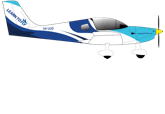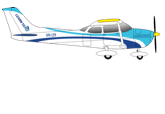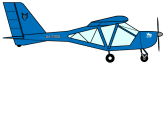
July 16, 2025
Aptitude Testing for Cadet Programs: What It Tests and How to Prepare
Aptitude tests are one of the most important early barriers for prospective cadet pilot candidates.
Regardless of whether you are applying locally or to some of the larger airlines in Asia or around the world, aptitude assessments will weed out those who do not have the basic cognitive, psychomotor, and personality traits needed to make it through the gruelling demands of pilot training and airline operations.
Aptitude tests are not meant to reflect academic background or even love of flying: these assessments are designed to find raw potential, decision-making, and adaptability in future airline pilots.
What Do Aptitude Tests Cover?
Cadet pilot aptitude tests are made up to mimic real-life situations and use scenarios that can actually be experienced in the cockpit today. Candidates are generally tested at an early stage in the selection process (usually during an aptitude assessment centre or test day). Here is a general breakdown of what these assessments will cover:
1. Cognitive Ability
Cognitive aptitude tests measure your reasoning, memory, problem-solving, and information-processing skills. The types of tests will generally include:
- Numerical reasoning (basic math and logic)
- Verbal reasoning (comprehension and grammar)
- Abstract reasoning (pattern recognition and spatial awareness)
These are meant to replicate the need to make quick decisions and demonstrate mental agility in the cockpit.
2. Psychomotor Skills
This refers to your hand-eye coordination, the ability to multitask, and your reaction time. Tracking tasks, divided attention tasks, and joystick-based tests are good examples of psychomotor ability tests. A typical psychomotor test might have you track a moving object on the computer screen with your mouse while also responding to a number that changes on the screen. You might have to match what the numbers are doing to what buttons you are pressing, similar to flying an aircraft while talking on the radio and responding to alerts.
3. Situational Judgment
Situational judgment tests (SJTs) measure your responses to interpersonal or ethical problems in a team environment. These include how you might respond to scenarios or hypothetical events in a CRM or STAR scenario that involve a co-worker or passenger. For each of these, you are required to provide an answer and pick the most appropriate or suitable response. Airlines look to these questions to measure maturity, fit with company culture, and emotional intelligence.
4. Personality Profiling
Cadet assessments include a personality test to determine whether your behavioural tendencies are closely aligned with those of successful pilots. Resilience, ability to handle stress, attention to detail, and working with others are behavioural traits that will often be specifically sought after.
How to Prepare for Aptitude Testing
Natural ability is important, but good preparation can also go a long way. Below are some of the ways you can improve your performance and be ready for the assessments:
Practice Core Skills
For cognitive tests, online aptitude test platforms allow you to complete a variety of free timed tests on verbal, numerical, and abstract reasoning. Practice these regularly and work to improve your speed and accuracy, as time is of the essence on most aptitude tests.
With respect to psychomotor abilities, flight simulator video games (particularly those with physical joysticks and controls) can help develop your coordination and spatial awareness. Video games that force you to multi-task (i.e. Air Traffic Control simulator games or joystick-controlled software) will best replicate the divided attention tasks used in cadet pilot aptitude assessments.
Get Situational Awareness
Preparing for, and reading through, common cockpit scenarios, as well as airline-standard operating procedures (SOPs), can also help prepare your situational judgment. It is not necessary to have prior flying experience. Reading up on flight safety case studies or following pilots (or asking to be shown around) is a good way of becoming familiar with the type of decisions pilots make in the cockpit, and the pressures they can face.
For SJTs, you can also do some research about the company and what they are looking for. For example, the cadet pilot interview process will often test whether or not you are willing to adhere to company safety policies and prioritize safety over all else. As a pilot, communication skills and CRM (crew resource management) will be key. Keep these things in mind when responding to these types of questions.
Personality Consistency
There is no ideal personality, but generally, the airlines are looking for consistency. Do not try to beat the system. Personality assessments are generally built with an internal logic to help weed out candidates who provide contradictory answers. Answer truthfully and consistently but keep in mind aviation-appropriate traits such as discipline, keeping calm under pressure, and eagerness to learn.
The Cadet Pilot Interview
Candidates who pass the aptitude assessments will be called in for the cadet pilot interview process (for example, the CX cadet pilot interview). Airlines like Cathay Pacific or those that operate through a Hong Kong flight training centre have a keen interest in your ability to express yourself, your thought process, motivation, and understanding of airline values.
During the interview, it is possible that you will be asked to provide feedback on your own performance or describe how you managed particular scenarios during the aptitude tests. Showing an ability to articulate your thought process as well as awareness of yourself, can help you to stand out from the crowd.
Aptitude tests can be stressful to take, but try to remember that they are not designed to trick you. These assessments are there to help ensure that you have the potential to succeed in a demanding training environment. As a pilot, you must be able to think and act quickly and accurately, all under extreme pressure. Aptitude assessments help to ensure that airline cadet programs enrol trainees with the foundation on which to build and hone these skills.


